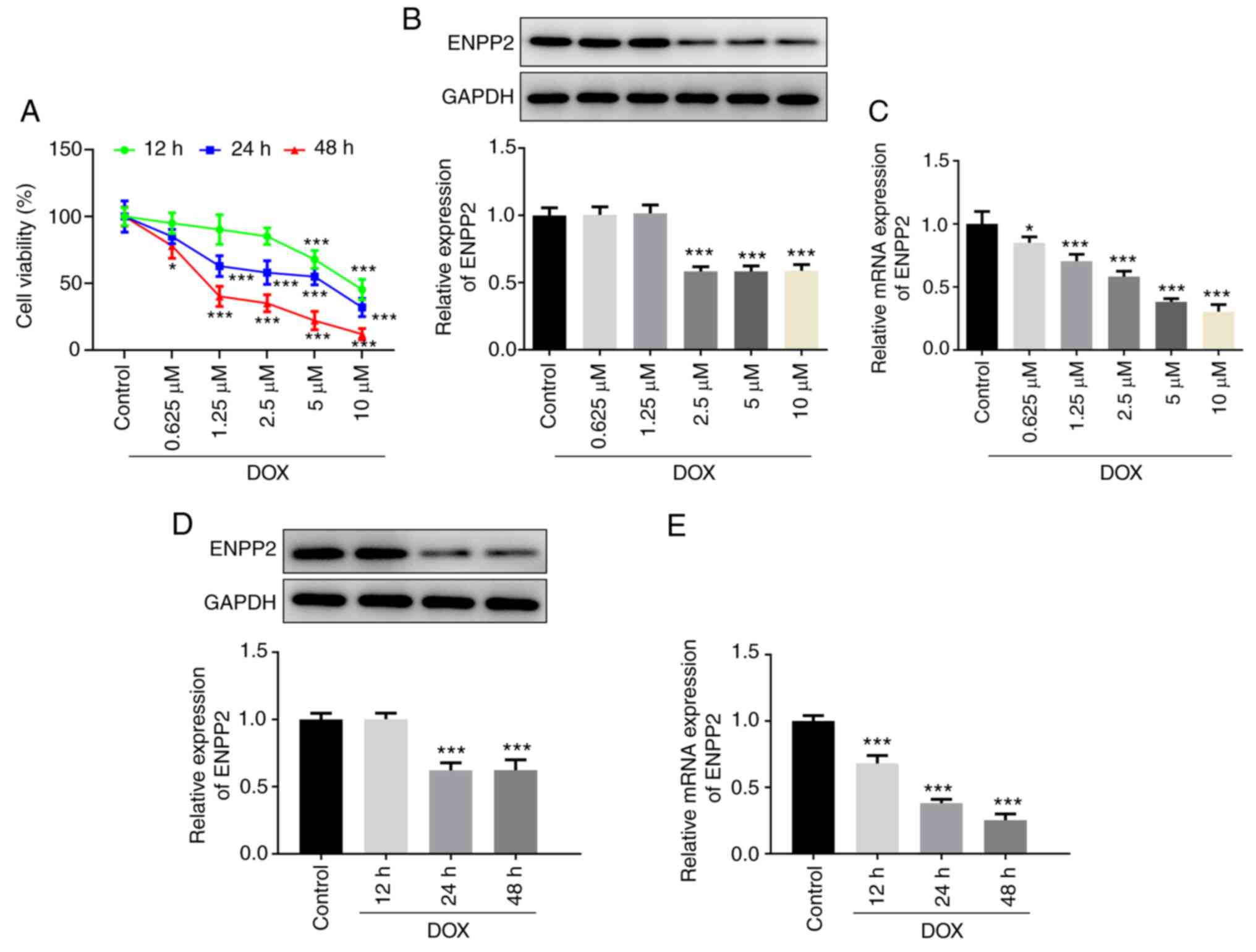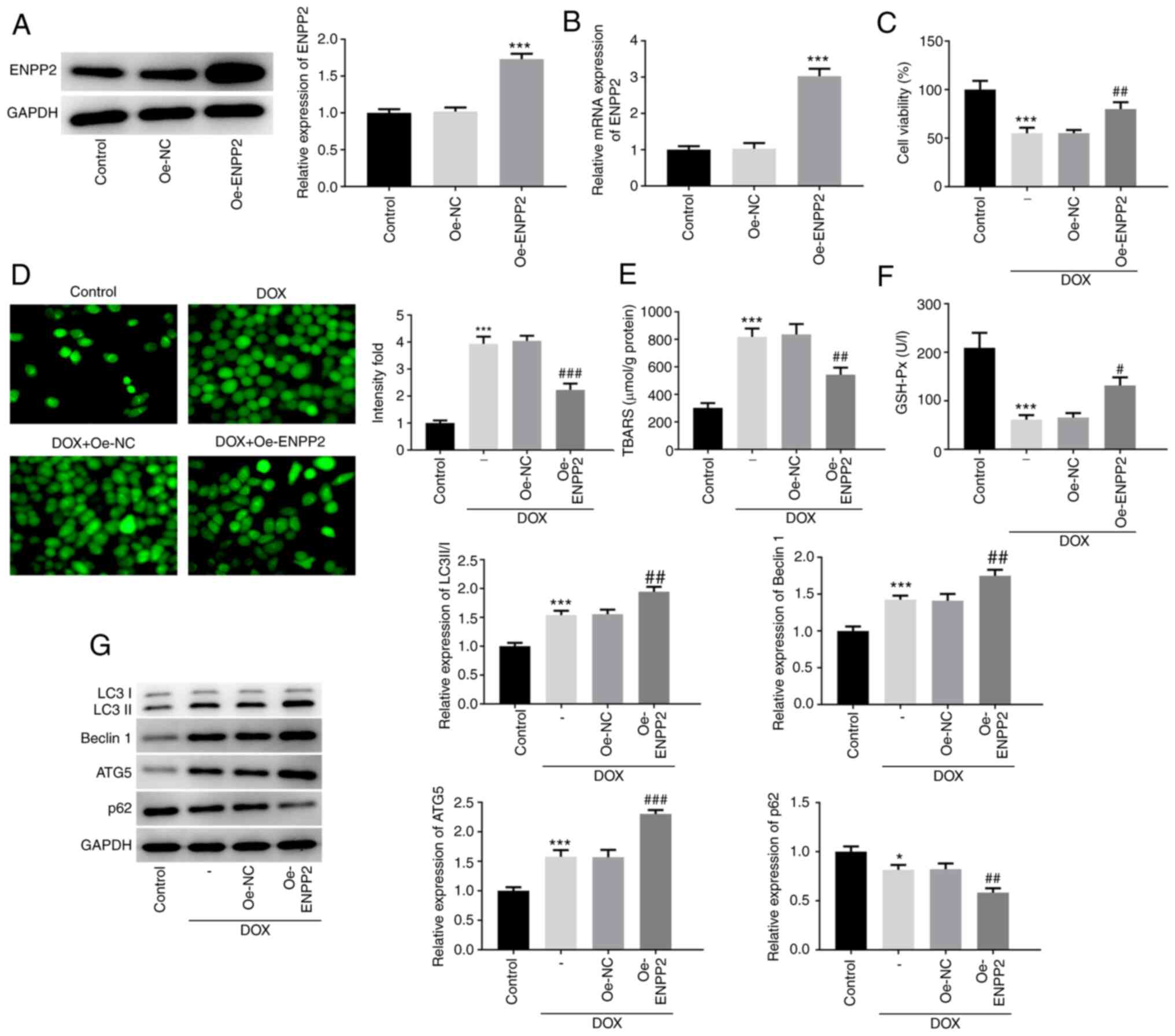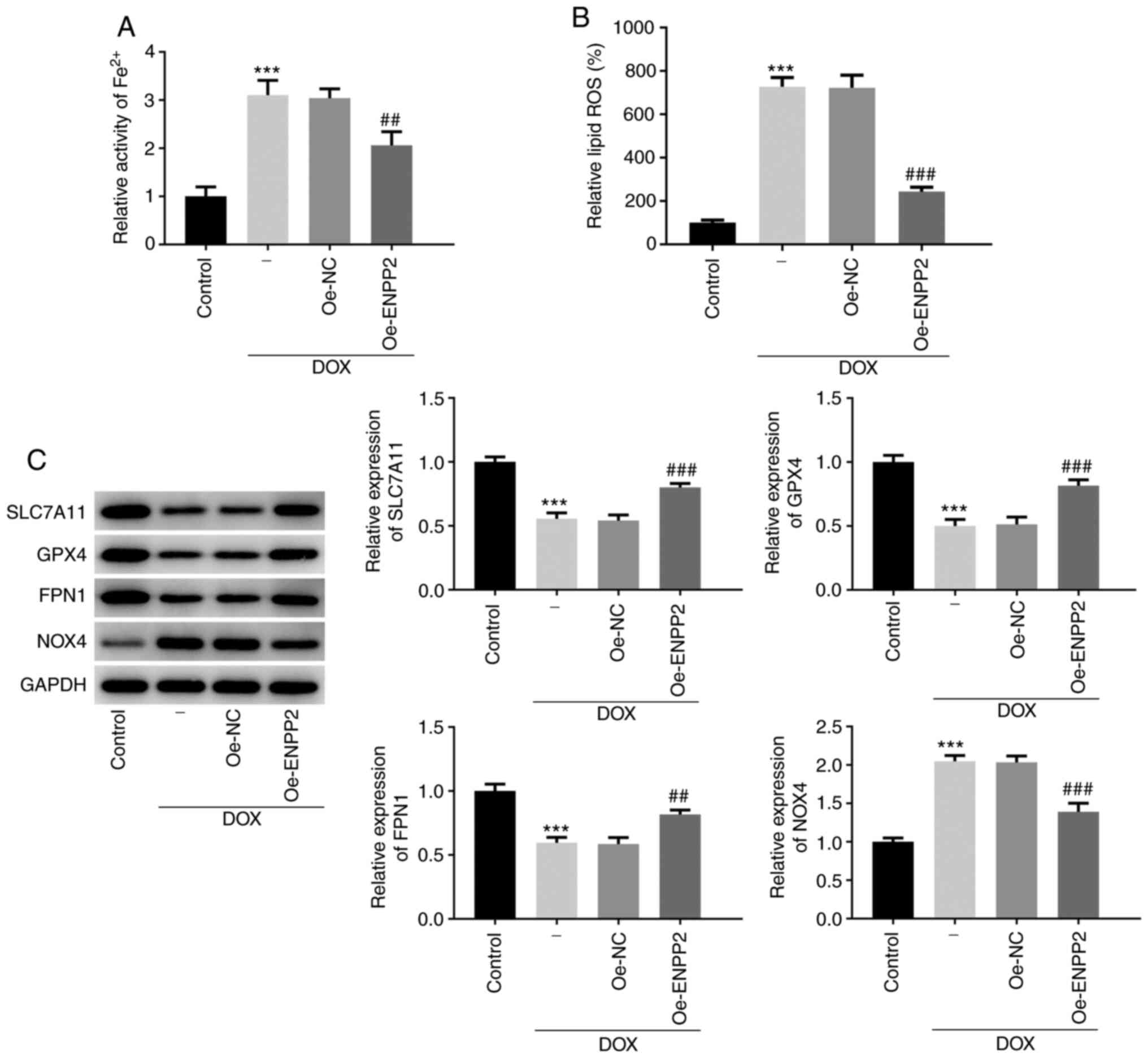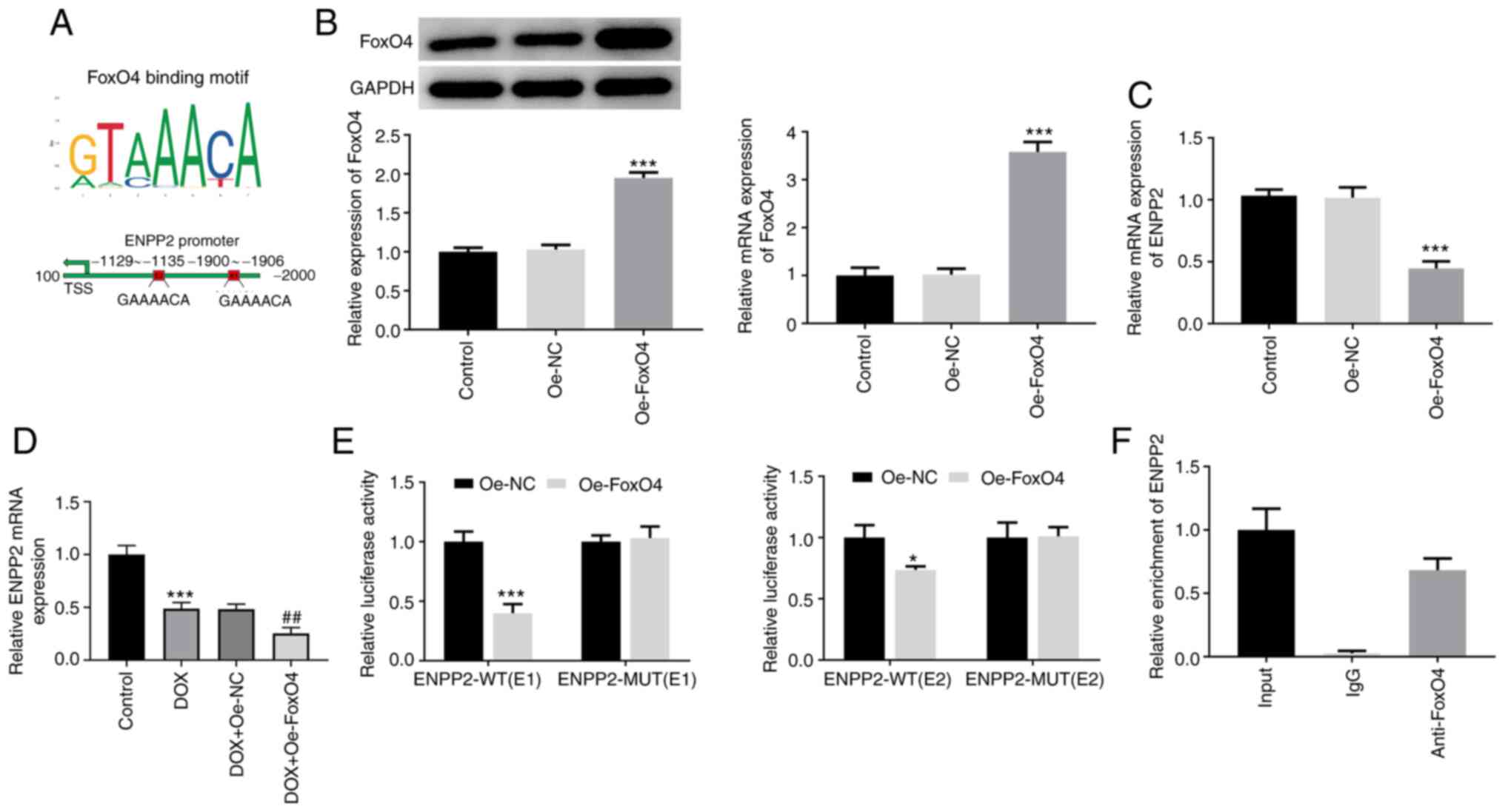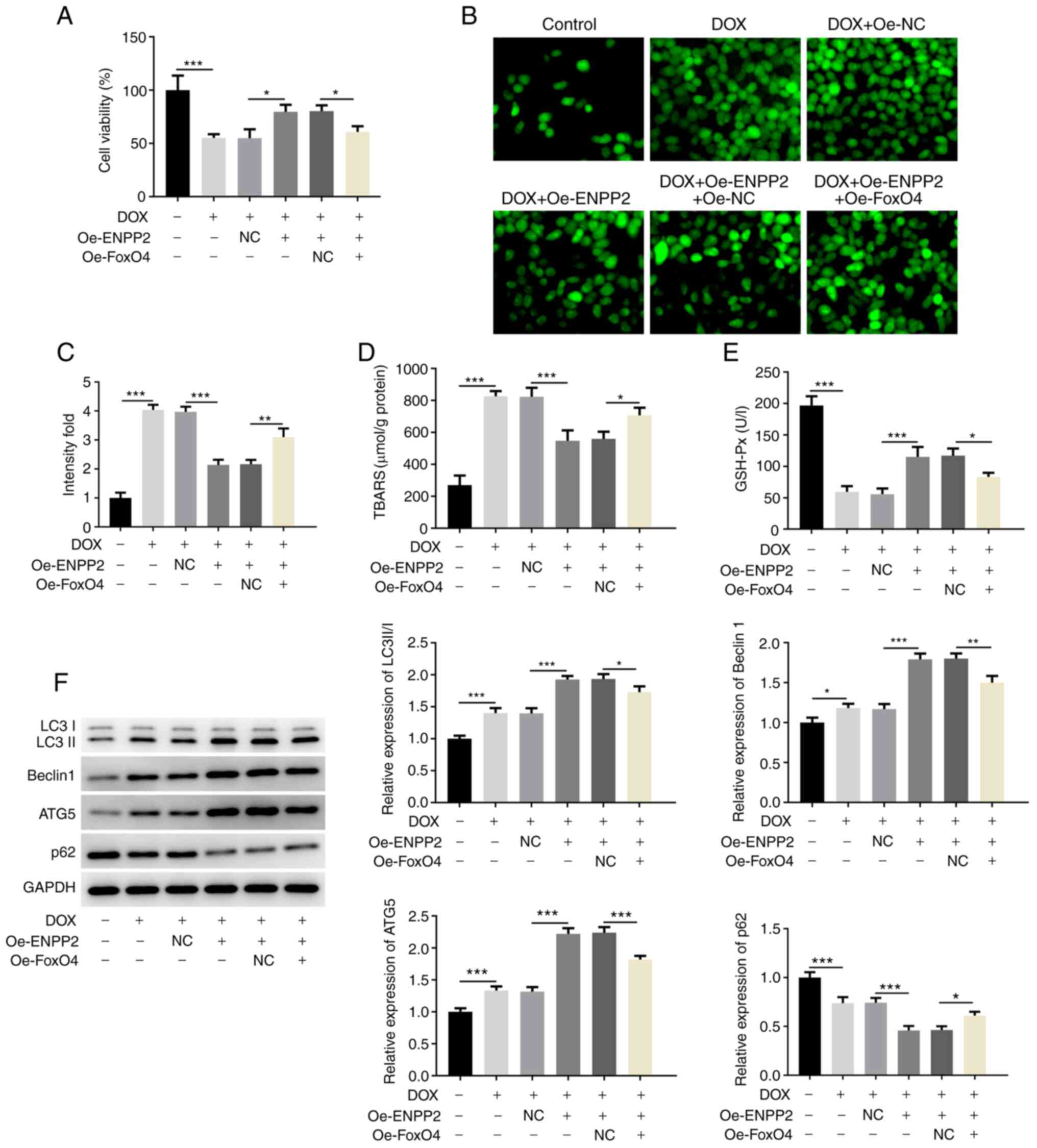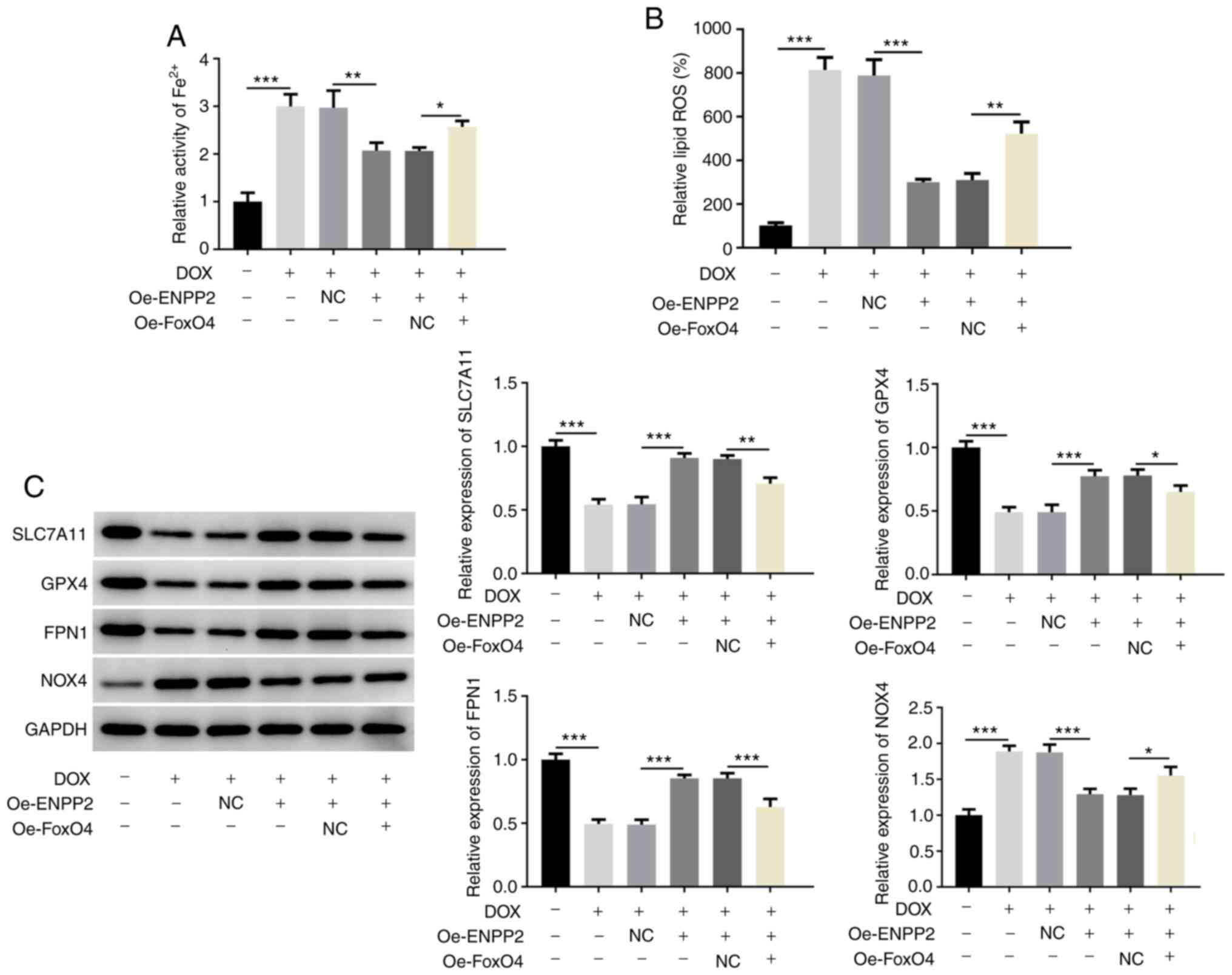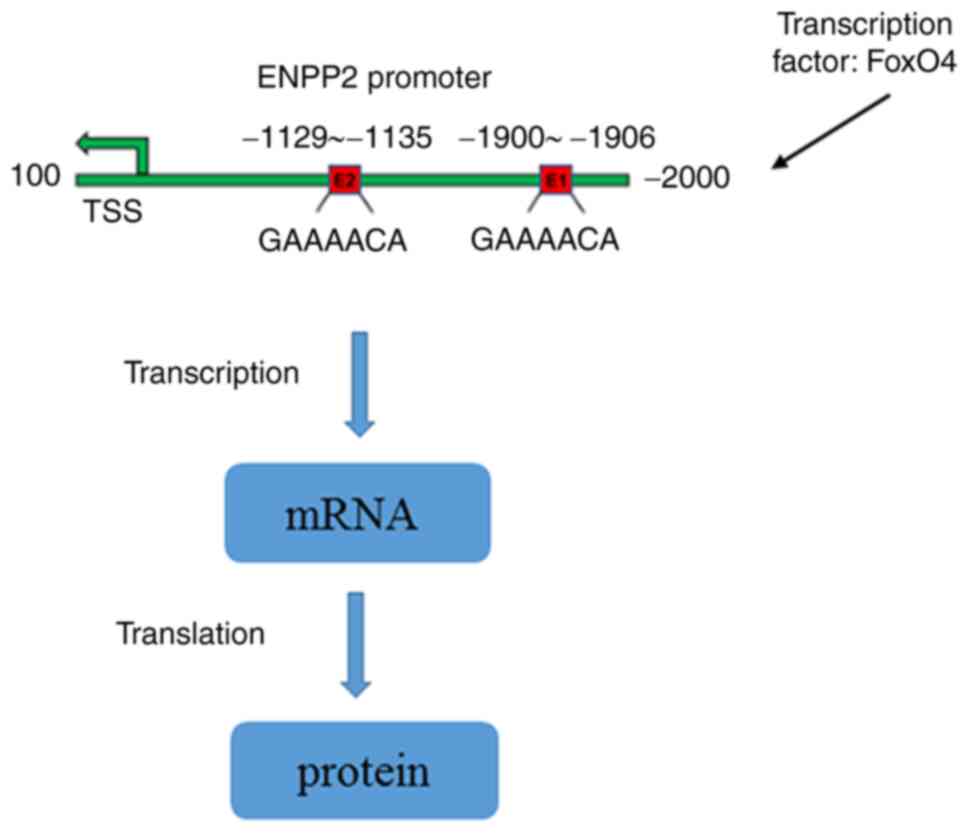|
1
|
Babiker HM, McBride A, Newton M, Boehmer
LM, Drucker AG, Gowan M, Cassagnol M, Camenisch TD, Anwer F and
Hollands JM: Cardiotoxic effects of chemotherapy: A review of both
cytotoxic and molecular targeted oncology therapies and their
effect on the cardiovascular system. Crit Rev Oncol Hematol.
126:186–200. 2018. View Article : Google Scholar : PubMed/NCBI
|
|
2
|
Gupta SK, Garg A, Bär C, Chatterjee S,
Foinquinos A, Milting H, Streckfuß-Bömeke K, Fiedler J and Thum T:
Quaking inhibits doxorubicin-mediated cardiotoxicity through
regulation of cardiac circular RNA expression. Circ Res.
122:246–254. 2018. View Article : Google Scholar : PubMed/NCBI
|
|
3
|
Tadokoro T, Ikeda M, Ide T, Deguchi H,
Ikeda S, Okabe K, Ishikita A, Matsushima S, Koumura T, Yamada KI,
et al: Mitochondria-dependent ferroptosis plays a pivotal role in
doxorubicin cardiotoxicity. JCI Insight. 5:e1327472020. View Article : Google Scholar : PubMed/NCBI
|
|
4
|
Fang X, Wang H, Han D, Xie E, Yang X, Wei
J, Gu S, Gao F, Zhu N, Yin X, et al: Ferroptosis as a target for
protection against cardiomyopathy. Proc Natl Acad Sci USA.
116:2672–2680. 2019. View Article : Google Scholar : PubMed/NCBI
|
|
5
|
Liu Y, Zeng L, Yang Y, Chen C, Wang D and
Wang H: Acyl-CoA thioesterase 1 prevents cardiomyocytes from
Doxorubicin-induced ferroptosis via shaping the lipid composition.
Cell Death Dis. 11:7562020. View Article : Google Scholar : PubMed/NCBI
|
|
6
|
Mou Y, Wang J, Wu J, He D, Zhang C, Duan C
and Li B: Ferroptosis, a new form of cell death: Opportunities and
challenges in cancer. J Hematol Oncol. 12:342019. View Article : Google Scholar : PubMed/NCBI
|
|
7
|
Hirschhorn T and Stockwell BR: The
development of the concept of ferroptosis. Free Radic Biol Med.
133:130–143. 2019. View Article : Google Scholar : PubMed/NCBI
|
|
8
|
Magkrioti C, Galaris A, Kanellopoulou P,
Stylianaki EA, Kaffe E and Aidinis V: Autotaxin and chronic
inflammatory diseases. J Autoimmun. 104:1023272019. View Article : Google Scholar : PubMed/NCBI
|
|
9
|
Zhao Y, Hasse S, Zhao C and Bourgoin SG:
Targeting the autotaxin-Lysophosphatidic acid receptor axis in
cardiovascular diseases. Biochem Pharmacol. 164:74–81. 2019.
View Article : Google Scholar : PubMed/NCBI
|
|
10
|
Bai YT, Chang R, Wang H, Xiao FJ, Ge RL
and Wang LS: ENPP2 protects cardiomyocytes from erastin-induced
ferroptosis. Biochem Biophys Res Commun. 499:44–51. 2018.
View Article : Google Scholar : PubMed/NCBI
|
|
11
|
Maiese K, Hou J, Chong ZZ and Shang YC: A
fork in the path: Developing therapeutic inroads with FoxO
proteins. Oxid Med Cell Longev. 2:119–129. 2009. View Article : Google Scholar : PubMed/NCBI
|
|
12
|
Zhu M, Goetsch SC, Wang Z, Luo R, Hill JA,
Schneider J, Morris SM Jr and Liu ZP: FoxO4 promotes early
inflammatory response upon myocardial infarction via endothelial
Arg1. Circ Res. 117:967–977. 2015. View Article : Google Scholar : PubMed/NCBI
|
|
13
|
You J, Gao F, Tang H, Peng F, Jia L, Huang
K, Chow K, Zhao J, Liu H, Lin Y and Chen J: A medicinal and edible
formula YH0618 ameliorates the toxicity induced by Doxorubicin via
regulating the expression of Bax/Bcl-2 and FOXO4. J Cancer.
10:3665–3677. 2019. View Article : Google Scholar : PubMed/NCBI
|
|
14
|
Wang Z, Zhang X, Tian X, Yang Y, Ma L,
Wang J and Yu Y: CREB stimulates GPX4 transcription to inhibit
ferroptosis in lung adenocarcinoma. Oncol Rep. 45:882021.
View Article : Google Scholar : PubMed/NCBI
|
|
15
|
Livak KJ and Schmittgen TD: Analysis of
relative gene expression data using real-time quantitative PCR and
the 2(-Delta Delta C(T)) method. Methods. 25:402–408. 2001.
View Article : Google Scholar : PubMed/NCBI
|
|
16
|
Jiang Y and Zhang Q: Catalpol ameliorates
doxorubicin-induced inflammation and oxidative stress in H9C2 cells
through PPAR-γ activation. Exp Ther Med. 20:1003–1011. 2020.
View Article : Google Scholar : PubMed/NCBI
|
|
17
|
Ye M, Zhang L, Yan Y and Lin H:
Punicalagin protects H9c2 cardiomyocytes from doxorubicin-induced
toxicity through activation of Nrf2/HO-1 signaling. Biosci Rep.
39:BSR201902292019. View Article : Google Scholar : PubMed/NCBI
|
|
18
|
Hu C, Zhang X, Wei W, Zhang N, Wu H, Ma Z,
Li L, Deng W and Tang Q: Matrine attenuates oxidative stress and
cardiomyocyte apoptosis in doxorubicin-induced cardiotoxicity via
maintaining AMPKα/UCP2 pathway. Acta Pharm Sin B. 9:690–701. 2019.
View Article : Google Scholar : PubMed/NCBI
|
|
19
|
Shafei A, El-Bakly W, Sobhy A, Wagdy O,
Reda A, Aboelenin O, Marzouk A, El Habak K, Mostafa R, Ali MA and
Ellithy M: A review on the efficacy and toxicity of different
doxorubicin nanoparticles for targeted therapy in metastatic breast
cancer. Biomed Pharmacother. 95:1209–1218. 2017. View Article : Google Scholar : PubMed/NCBI
|
|
20
|
Abd-Rabou AA, Ahmed HH and Shalby AB:
Selenium overcomes doxorubicin resistance in their nano-platforms
against breast and colon cancers. Biol Trace Elem Res. 193:377–389.
2020. View Article : Google Scholar : PubMed/NCBI
|
|
21
|
Mikhail AS, Negussie AH, Pritchard WF,
Haemmerich D, Woods D, Bakhutashvili I, Esparza-Trujillo J,
Brancato SJ, Karanian J, Agarwal PK and Wood BJ:
Lyso-thermosensitive liposomal doxorubicin for treatment of bladder
cancer. Int J Hyperthermia. 33:733–740. 2017.PubMed/NCBI
|
|
22
|
de Klerk E and ‘t Hoen PA: Alternative
mRNA transcription, processing, and translation: Insights from RNA
sequencing. Trends Genet. 31:128–139. 2015. View Article : Google Scholar : PubMed/NCBI
|
|
23
|
Shabalala S, Muller CJF, Louw J and
Johnson R: Polyphenols, autophagy and doxorubicin-induced
cardiotoxicity. Life Sci. 180:160–170. 2017. View Article : Google Scholar : PubMed/NCBI
|
|
24
|
Xiao B, Hong L, Cai X, Mei S, Zhang P and
Shao L: The true colors of autophagy in doxorubicin-induced
cardiotoxicity. Oncol Lett. 18:2165–2172. 2019.PubMed/NCBI
|
|
25
|
Cappetta D, De Angelis A, Sapio L,
Prezioso L, Illiano M, Quaini F, Rossi F, Berrino L, Naviglio S and
Urbanek K: Oxidative stress and cellular response to doxorubicin: A
common factor in the complex milieu of anthracycline
cardiotoxicity. Oxid Med Cell Longev. 2017:15210202017. View Article : Google Scholar : PubMed/NCBI
|
|
26
|
Wu C, Zhao W, Yu J, Li S, Lin L and Chen
X: Induction of ferroptosis and mitochondrial dysfunction by
oxidative stress in PC12 cells. Sci Rep. 8:5742018. View Article : Google Scholar : PubMed/NCBI
|
|
27
|
Latunde-Dada GO: Ferroptosis: Role of
lipid peroxidation, iron and ferritinophagy. Biochim Biophys Acta
Gen Subj. 1861:1893–1900. 2017. View Article : Google Scholar : PubMed/NCBI
|
|
28
|
Seibt TM, Proneth B and Conrad M: Role of
GPX4 in ferroptosis and its pharmacological implication. Free Radic
Biol Med. 133:144–152. 2019. View Article : Google Scholar : PubMed/NCBI
|
|
29
|
Luo LF, Guan P, Qin LY, Wang JX, Wang N
and Ji ES: Astragaloside IV inhibits adriamycin-induced cardiac
ferroptosis by enhancing Nrf2 signaling. Mol Cell Biochem.
476:2603–2611. 2021. View Article : Google Scholar : PubMed/NCBI
|
|
30
|
Liu T, Jiang L, Tavana O and Gu W: The
deubiquitylase OTUB1 mediates ferroptosis via stabilization of
SLC7A11. Cancer Res. 79:1913–1924. 2019. View Article : Google Scholar : PubMed/NCBI
|
|
31
|
Wang Z, Ding Y, Wang X, Lu S, Wang C, He
C, Wang L, Piao M, Chi G, Luo Y and Ge P: Pseudolaric acid B
triggers ferroptosis in glioma cells via activation of Nox4 and
inhibition of xCT. Cancer Lett. 428:21–33. 2018. View Article : Google Scholar : PubMed/NCBI
|
|
32
|
Xu H, Yu W, Sun S, Li C, Zhang Y and Ren
J: Luteolin attenuates doxorubicin-induced cardiotoxicity through
promoting mitochondrial autophagy. Front Physiol. 11:1132020.
View Article : Google Scholar : PubMed/NCBI
|
|
33
|
Zhou B, Liu J, Kang R, Klionsky DJ,
Kroemer G and Tang D: Ferroptosis is a type of autophagy-dependent
cell death. Semin Cancer Biol. 66:89–100. 2020. View Article : Google Scholar : PubMed/NCBI
|
|
34
|
Liu J, Kuang F, Kroemer G, Klionsky DJ,
Kang R and Tang D: Autophagy-dependent ferroptosis: Machinery and
regulation. Cell Chem Biol. 27:420–435. 2020. View Article : Google Scholar : PubMed/NCBI
|
|
35
|
Oteiza A and Mechti N: FoxO4 negatively
controls Tat-mediated HIV-1 transcription through the
post-transcriptional suppression of Tat encoding mRNA. J Gen Virol.
98:1864–1878. 2017. View Article : Google Scholar : PubMed/NCBI
|
|
36
|
Yu L, Zhang W, Huang C, Liang Q, Bao H,
Gong Z, Xu M, Wang Z, Wen M and Cheng X: FoxO4 promotes myocardial
ischemia-reperfusion injury: The role of oxidative stress-induced
apoptosis. Am J Transl Res. 10:2890–2900. 2018.PubMed/NCBI
|















